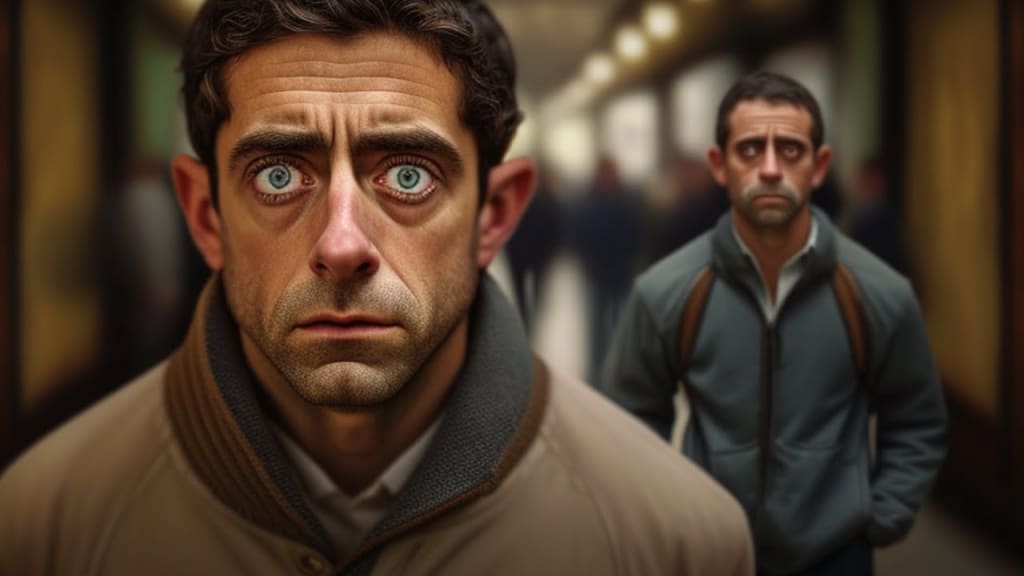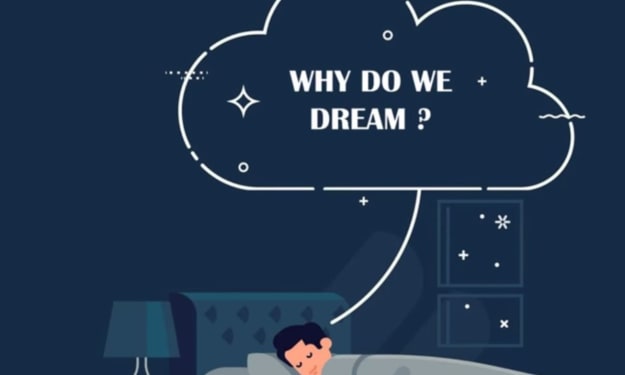Ever Had Deja Vu? This Is Why.
"Unlocking the Mystery of Déjà Vu: Exploring the Fascinating Phenomenon"

We're diving into the fascinating world of déjà vu. So, remember that movie Groundhog Day from 1993, where Bill Murray's character, Phil Connors, keeps reliving the same day over and over again? Well, déjà vu is like a mini version of that weird sensation when you feel like you've experienced something before, even though you know you haven't. Between 60% and 80% of us have felt it at least once in our lives. But what exactly is déjà vu, and why does it happen?
Déjà vu is a French term, which literally means "already seen." Back in the day, it was considered so mysterious that parapsychologists, who study supernatural phenomena, were really into it. They thought it had something to do with past lives or alien abductions. Imagine, you walk into a room, and it feels strangely familiar, and suddenly you're convinced you must have lived here in a past life or been probed by aliens in this very spot. Yeah, that's how wild déjà vu used to be!
But the scientific community started taking it more seriously over time. Although, a 1991 Gallup poll suggested that many folks still considered it on par with astrology, ghosts, and other superstitious stuff. However, we now know that déjà vu isn't just one thing. There are different types to keep in mind, like déjà entendu (hearing something new that feels familiar), déjà pensé (thinking you've had a thought before when you haven't), déjà gouté (relating to food), and déjà voulu (feeling like you desired something or someone before). And it's not precognition, where people think they can predict the future.
Scientists have discovered two main types of déjà vu: the regular, random kind, and another kind associated with neurological conditions like epilepsy. The second type happens more frequently in people who have these conditions and is often referred to as "pathological déjà vu." It's caused by issues in the brain's memory-handling section, specifically the frontal lobe. This type is different from the everyday déjà vu, where you might just feel like you've been somewhere before for a brief moment.
In extreme cases, people can experience something called "déjà vécu" (already lived). There's this story of a guy named Pat Long who had a brain tumor that caused this condition. His déjà vécu was so intense that he couldn't differentiate between past experiences and the present. It's a bit like living in a never-ending time loop.
Epilepsy sufferers also report experiencing déjà vu during seizures, along with its opposite, "jamais vu," where a familiar situation suddenly feels foreign. Imagine looking at your own room and feeling like you've never seen it before. Weird, right?
Scientists have come up with different theories to explain déjà vu. Some think it's a memory-processing malfunction where the brain identifies something as familiar without the initial check. Others believe it's a conflict resolution mechanism preventing false memories from forming. You see, in one study, they convinced people they had seen things they hadn't and found that déjà vu-like feelings were linked to brain activity in the decision-making part, not the memory section.
Then there's the theory that déjà vu is triggered by forgotten memories. It's like your brain's way of saying, "Hey, this might be familiar because it's similar to something you've almost forgotten." People who travel a lot tend to experience déjà vu more often, which supports this idea. The more places you've been and things you've done, the more likely you are to find new experiences familiar because they resemble things you don't quite remember consciously.
Now, let's not forget good old Sigmund Freud. He believed déjà vu was connected to repressed desires or traumatic memories, but then again, he linked everything to those things. He even had a theory that déjà vu was related to, well, genitals. His reasoning was that everyone has been in their mother's womb once, and déjà vu is like a feeling of being somewhere familiar you've been to only once. Pretty out there, right?
There's also the "dual processing" theory, which suggests déjà vu happens when one part of your brain processes an experience before the other. This delay might cause the eerie feeling of déjà vu. And some believe that divided attention, like when you're multitasking while entering a new place, could lead to déjà vu because your brain takes in information subconsciously before processing it consciously.
But here's the kicker: despite all these theories and experiments, we still don't know for sure what causes déjà vu. It remains a bit of a mystery. One recent study in 2019 found that people who experience déjà vu more often use different parts of their brain to retrieve memories. Perhaps it's just a sign that our brains are still sharp and not yet succumbing to forgetfulness. Déjà vu is most common in people between 15 and 25 years old, so it might be a reassuring reminder that our memory is still working well at that age.
So, there you have it, the mysterious and intriguing world of déjà vu. While it's still not entirely understood, it's a fascinating phenomenon that continues to baffle scientists and spark our curiosity. Who knows, maybe one day we'll unlock the secrets behind this strange sensation!
About the Creator
Varisha Ahmed
With every turn of a page, she's transported away
Lost in the magic that stories convey
From the comfort of her chair, she's never alone
As long as there are books, her spirit will roam






Comments
There are no comments for this story
Be the first to respond and start the conversation.